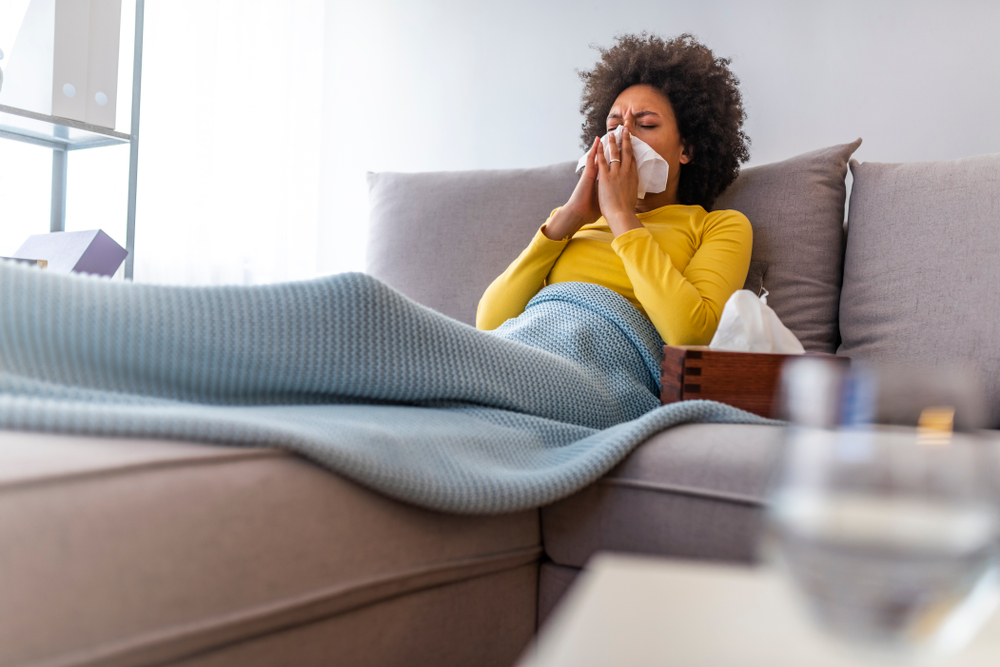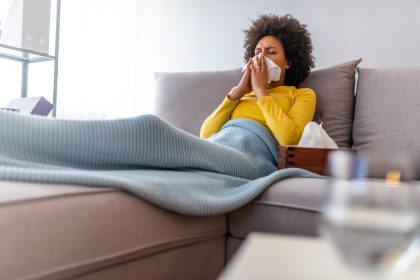Sweating is often associated with exercise or hot weather, but what about when you’re curled up in bed, shivering with a cold? It can feel strange and uncomfortable, leaving you wondering why your body is sweating when you feel so cold. While it may seem confusing, this is your body’s way of fighting off the infection and trying to restore balance. Understanding why this happens can help you cope better with your symptoms and take steps to feel more comfortable during illness.
Understanding the body’s temperature regulation
When you’re healthy, your body works like a finely tuned machine, keeping your core temperature around 98.6°F (37°C). But when you’re sick, that balance gets disrupted. Your body’s temperature is controlled by the hypothalamus, a small region in your brain. When you have a cold, your immune system goes into overdrive, and part of its response includes raising your body temperature to make it less inviting for the virus.
As your immune system fights the infection, it releases chemicals like cytokines, which signal the hypothalamus to raise your body temperature. This results in a fever, which is your body’s way of creating an environment that’s tough for the virus to survive.
Fever
One of the reasons your body sweats when you’re sick with a cold is related to fever. A fever can be both helpful and uncomfortable. It helps fight the infection, but it also makes you feel miserable. When the fever starts to go down, your hypothalamus tells your body it’s time to cool off. That’s when sweating kicks in as your body lowers the temperature.
Why do you sweat more at night?
Night sweats are a common experience when you have a cold, often leaving you drenched in sweat despite feeling cold. At night, your body temperature can fluctuate more, and as your immune system works harder to combat the infection, sweating increases. While night sweats can be uncomfortable, they are a natural part of your body’s healing process.
The role of sweating in fighting a cold
Sweating might be uncomfortable, but it’s a crucial part of your body’s defense. Think of it as your body resetting itself. After your fever breaks, the body sweats to cool down and return to normal temperature. This is why you often feel better after sweating—it’s a sign that your body is winning the fight against the cold virus.
Does sweating help get rid of the cold?
A common myth is that sweating out a cold can speed up recovery. While sweating is part of the healing process, it doesn’t necessarily mean you’re flushing the virus out. Instead, sweating is a sign that your body is regulating its temperature as it fights the virus. Staying hydrated is important during this time since sweating causes fluid loss.
Emotional impact of sweating during a cold
Excessive sweating when you’re sick can be more than just physically uncomfortable; it can also be emotionally draining. You might feel frustrated if you wake up drenched in sweat or embarrassed if you’re sweating more than usual in public. Remind yourself that this is a natural part of the healing process, and your body is doing its best to fight the infection.
That said, pay attention to how you feel overall. If sweating is accompanied by extreme fatigue, confusion, or other unusual symptoms, it’s best to consult a health care professional.
Managing sweating and cold symptoms
Although sweating is a natural part of having a cold, there are ways to manage the symptoms and make yourself more comfortable.
1. Stay hydrated
Since sweating leads to fluid loss, it is essential to drink plenty of fluids. Water, herbal teas, and drinks with electrolytes will keep you hydrated and support your body’s recovery process.
2. Wear light, breathable clothing
It’s tempting to bundle up when you feel cold, but wearing too many layers can make sweating worse. Opt for light, breathable fabrics that allow moisture to escape and help regulate your body temperature.
3. Use cool cloths or fans
If you’re sweating excessively, using a fan or placing cool, damp cloths on your skin can help you feel more comfortable. However, avoid cooling down too quickly, as drastic changes in temperature can be hard on your body.
4. Change bed linens regularly
Night sweats can soak your bed linens, making it difficult to sleep. Keep extra sheets nearby and change them regularly to stay dry and comfortable through the night.
When sweating during a cold becomes a concern
Although sweating is a normal part of recovering from a cold, it can sometimes indicate a more serious problem. Seek medical attention if you experience any of the following symptoms:
- Sweating that’s excessive or lasts a long time
- A fever that persists for more than three days
- Chest pain, difficulty breathing, or confusion
- Sweating accompanied by a severe headache or stiff neck
These symptoms could suggest complications like pneumonia or other serious infections, and prompt treatment may be necessary.
Sweating, a necessary discomfort
Sweating when you have a cold might be uncomfortable, but it’s your body’s way of fighting off the virus and returning to balance. Though it can be inconvenient, sweating shows that your immune system is actively responding to the infection. By staying hydrated, wearing the right clothes, and keeping yourself comfortable, you can make the experience more manageable.
In the end, sweating is a necessary part of the healing process. Your body is equipped with an amazing ability to regulate itself and fight off illness, and sweating is just one of the ways it accomplishes that. While it might feel unpleasant, take comfort in knowing that your body is doing what it needs to do to help you recover.
The next time you find yourself sweating through a cold, remember that it’s a sign of progress. With proper care, rest, and hydration, your body will get through the infection, and you’ll feel better soon.
This story was created using AI technology.











